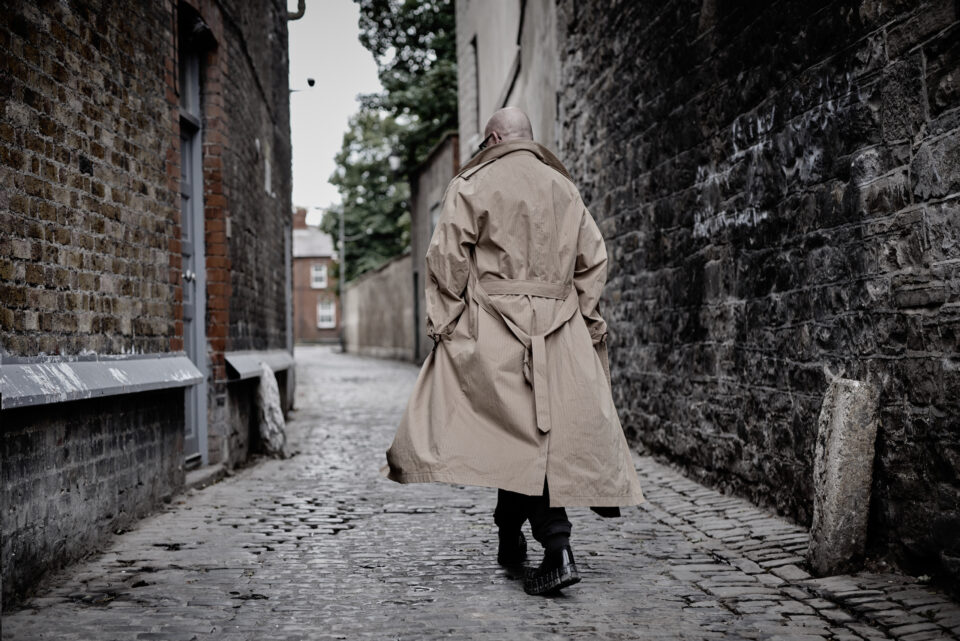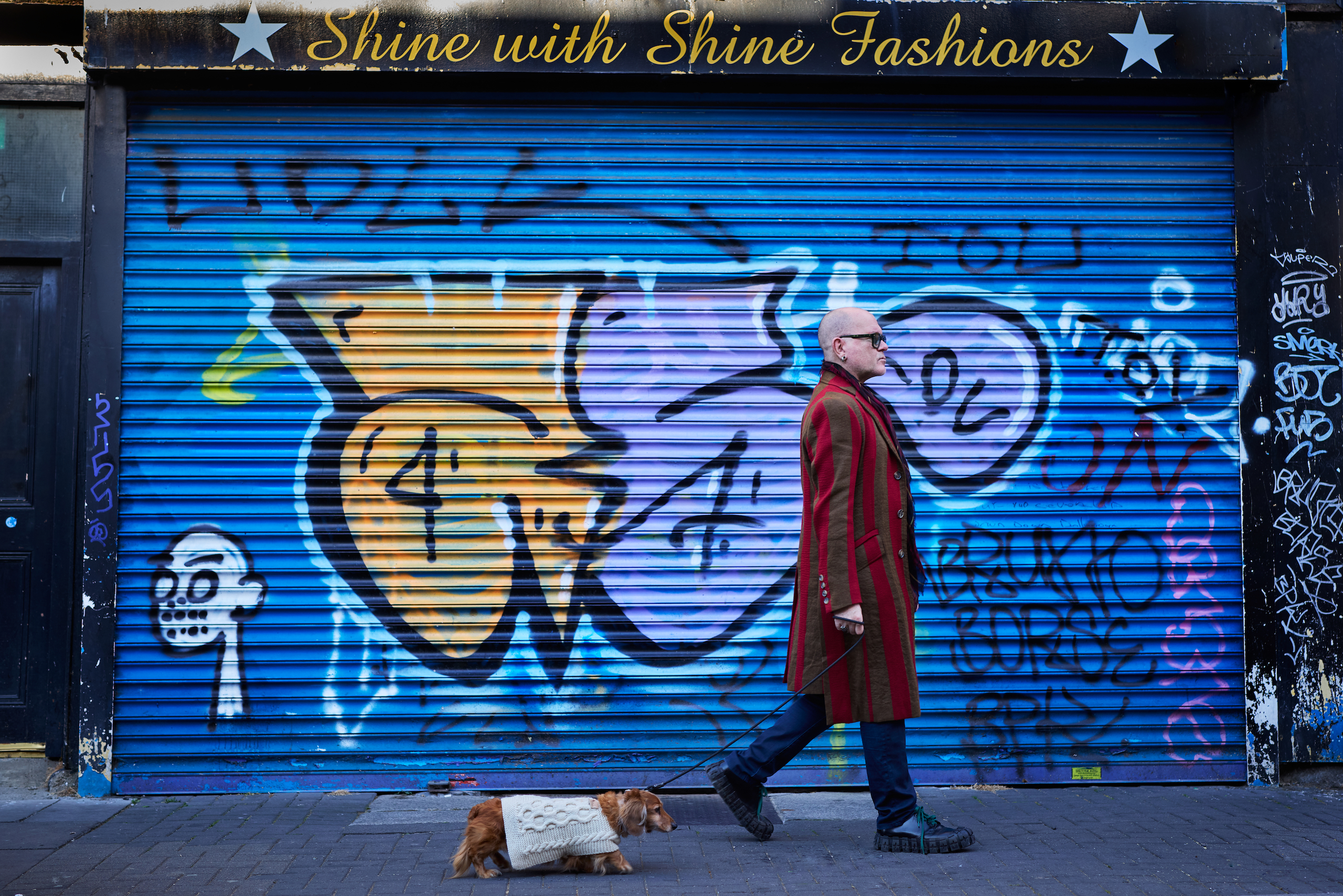Few musical artists have fused the word of God with the wiles of man as Gavin Friday has. From his time as the garish, garrulous founder of glam-transgressives the Virgin Prunes through to a broodingly theatrical solo career of cine-cabaret sounds and ecumenical lyricism touched by wry, black humor, Friday has fashioned an aesthetic wherein passionate theology meets existential philosophy meets Brendan Behan drama. For bonus points, the stages set for Friday—on solo albums such as 1995’s Shag Tobacco and 2021’s Catholic—allow for its actions to take place for the author-vocalist while rolling around in the pains of vulnerability and good ol’ fashion bleak Irish laughs. To steal a title from Beat correspondent Neal Cassady, Gavin Friday is a holy goof.
On his newest album Ecce Homo, Friday reaches into the Gospel of John to portray intimate moments of innocence and epic shots at individuality within the broader landscape of what it means to be alive in 2024—its awesome lack of social conscience, its ill-conceived politics and practicing rhetoricians. And, in conversation from his home in Ireland, Friday notes that his dogs happen to be the only worthy vessels to convey love and warmth in such sad, strained times.
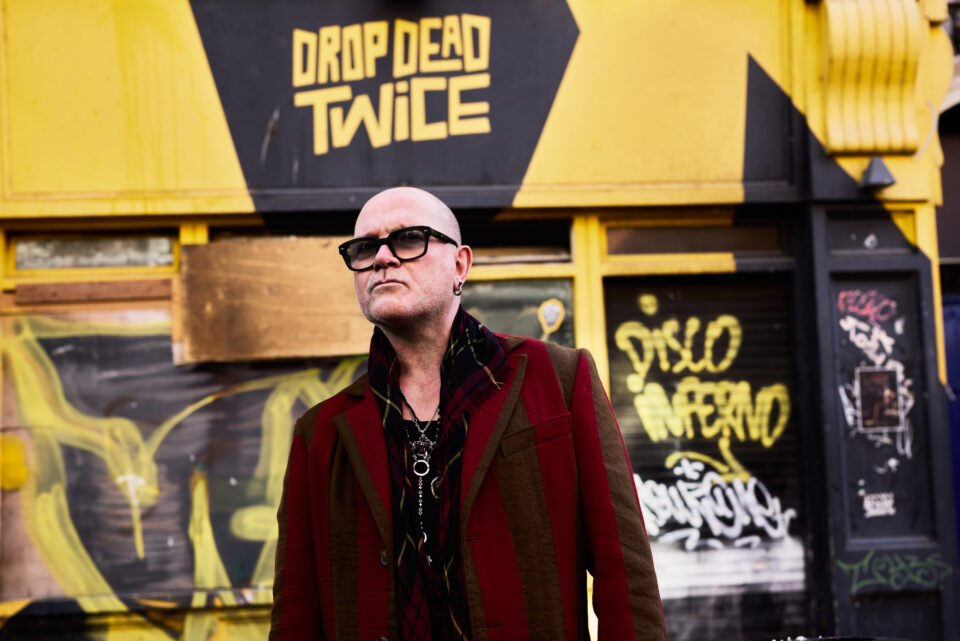
The subject comes up when I ask Friday about countering the seriousness of his image as a man of the cloth (well, at least as a man writing about the cloth) with the last thing that made him giggle uncontrollably. “Earlier I was doing a face-to-face [interview] with the Irish network RTÉ and one of its journalists at a café around the corner,” he says slowly, as if setting a scene. “My dog Stan was with me, he’s quite old—15 now. The interview started quirky, then got great. Then, as we’re talking, the dog gets up and does a shit in the middle of the café. Dogs have this vulnerability when they’re pooping, and everyone there at first thought, ‘Poor guy.’ Yet the shit’s still there.”
Defecating dogs might not lead easily to the ideas that fill Friday’s work, but trying to find the continuum in his music from the Prunes to the present does yield the most glittering of nuggets. “I never look at God and religion as the same,” Friday says pointedly. “I don’t like fundamentalism. I grew up in a Catholic Ireland that’s very different from what it is now. If you just spoke to a 20-, even a 30-year-old Dubliner, they wouldn’t know what I was talking about. This country and city have changed so much. I was born and bred when this country was being strangled by the Catholic church, so all of this is a part of my DNA. I have those scars that I exorcised through the Virgin Prunes and my work since.”
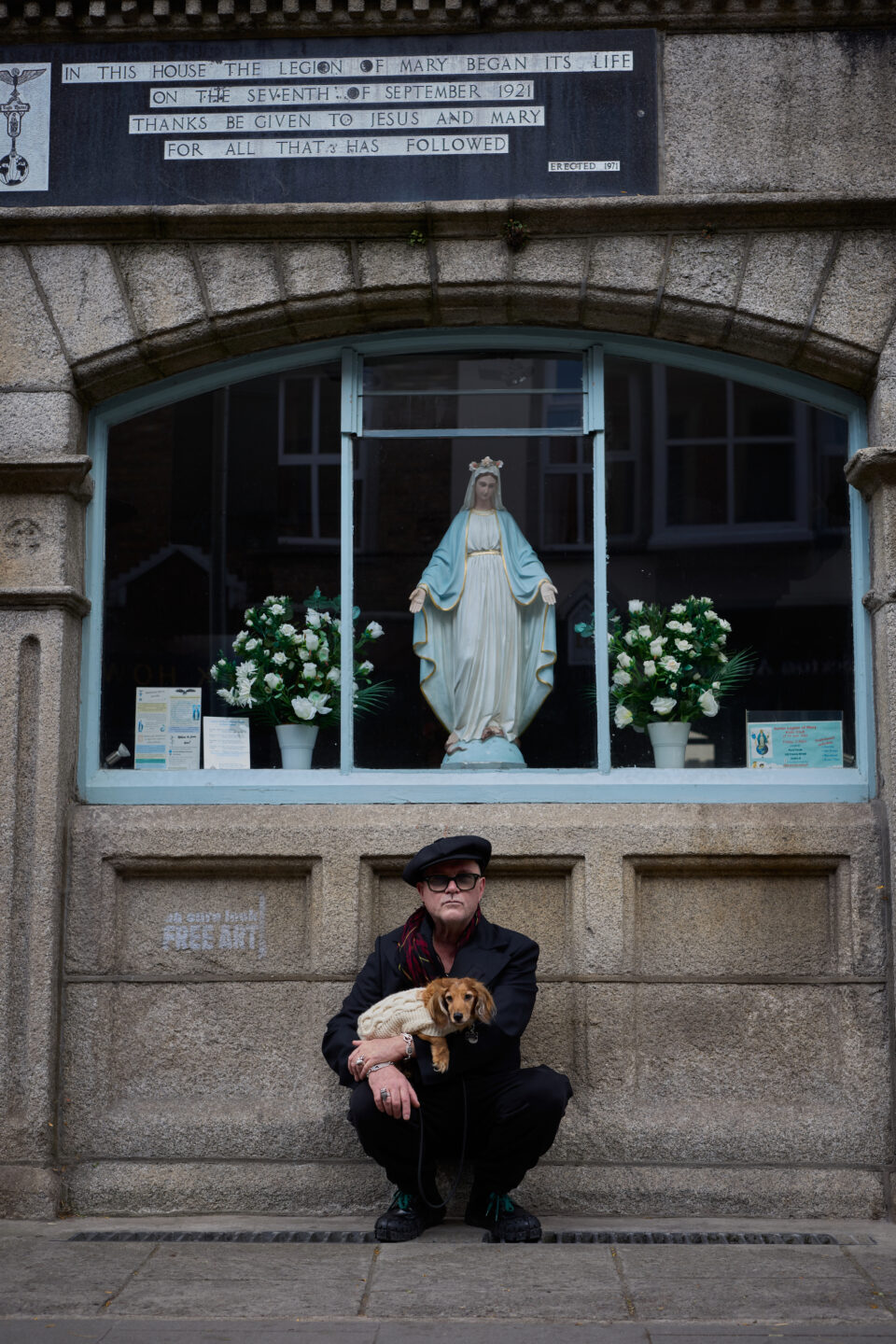
“I was born and bred when this country was being strangled by the Catholic church, so all of this is a part of my DNA. I have those scars that I exorcised through the Virgin Prunes and my work since.”
A believer in God with deep spiritual beliefs, Friday uses religious imagery the way a sculptor tears into marble: with muscle and force. He’s proud to tuck into the phrase “I use these things as tokens of expression” with a rich, deep burr, leaving room for the punchline: “Now, whether or not I put the two fingers up, that all depends. Where all that is today, though, I’m focused on the intolerance of it all.”
Friday goes back to the ’90s and the “actual storm” of Catholic priests and their “perverted crimes” against children and women, and remarks on how “not popular” the church is at present in his homeland (“They’re still a power,” he concedes). “Why doesn’t the Catholic church open up their doors and feed these men and women? Open up their doors and wash the feet of refugees? Isn’t that the word of God? I get angry at men who point fingers at women’s sexuality, but won’t look at the souls around them. God is supposed to be love.”
Returning to the confessional holy role that ties Ecce Homo to its 2011 predecessor, Friday talks about how so much of the latter’s tough yet tender lyrics are connected to the soul of his father, while the former, newer effort speaks to the humanity of his mother. “I had a very dysfunctional relationship with my dad,” says Friday, whose pop passed right before Catholic was released. “We never really spoke until his death bed. He apologized there for not understanding me as a kid and when I was in the Virgin Prunes. It was as if I’d had this black dog sitting on my lap my whole life. But when my dad died, he let it all go. He apologized and held my hand for the first time in over 40 years.”
Meanwhile, his mom was the uniter, the doer, the seamstress who made the outfits for the whole of the Virgin Prunes, the parent who stitched together her family unit. “She was totally there for me, and we had the greatest relationship,” says Friday. Thinking of a father who forgot about Friday until his death, his mom was hit with the reverse in that she got Alzheimer’s late in life and lost so many of the happy memories she shared with her eldest boy. “She couldn’t talk to me for the last six years of her life—she was a talker, too—and I found that so, so hard,” he says with a tremble in his voice.
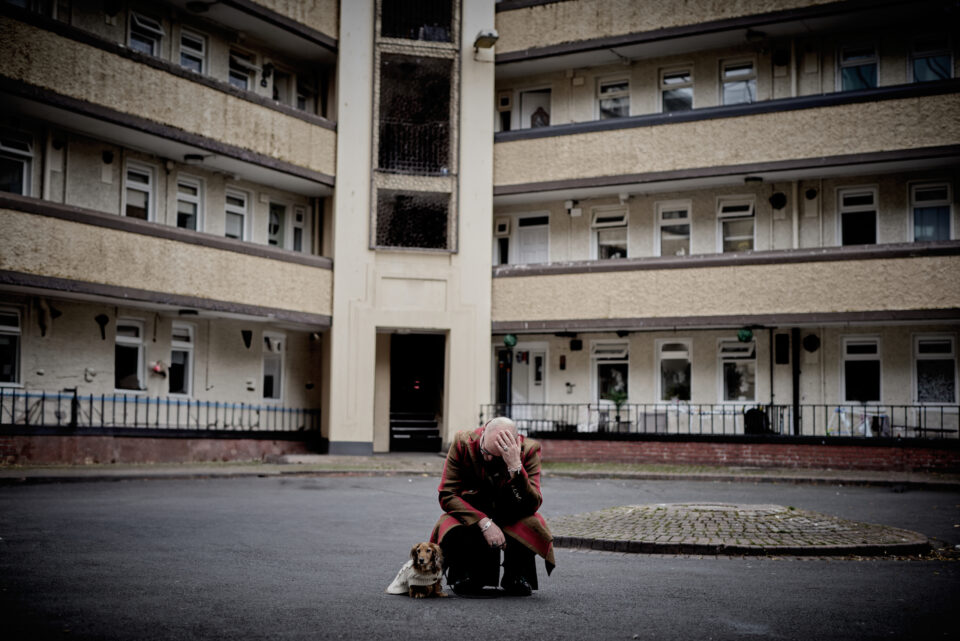
Friday’s mother is within Ecce Homo songs like “Amaranthus (Love Lies Bleeding),” which touches on the anger of not being able to talk with the woman of his dreams. “I have this weird analogy about Alzheimer’s. You know Invasion of the Body Snatchers? Whoever made that film, or the book, must’ve been similarly in touch with someone who had dementia, because it really is as if the spirit or the soul of the person is gone—the lights are on but no one’s home. And that’s a heartbreaking, angering thing.” Thus, Friday, let all of his anger out on Ecce Homo. “I learned as a young punk: sing about it,” he says. “My mom used to say, ‘If you think someone is an asshole, call them an asshole.’”
To go with the lyrical bluster of Ecce Homo is its raw, nervy soundscape—an aggressive metal-scraping-on-rubber electronic thrum provided by one-time Virgin Prunes producer David Ball of Soft Cell fame. “I hadn’t seen Ball in years, 30-some, until 2014 when, remotely, he contacted me to do a cover version of Suicide’s ‘Ghost Rider’ for Alan Vega’s 70th birthday,” notes Friday of the pair’s reconnection. Six months passed and Ball and Friday began ping-ponging song ideas between them for two years until the vocalist realized something golden was at hand. “I didn’t solely want it to be electronic. I wanted to have this cinematic thing that I’ve done for my movie stuff, and for Catholic. And suddenly Dave happily felt as if we’d reformed Soft Cell. So that’s how we got that other layer: deciding we wanted more and each going off and accomplishing that.”
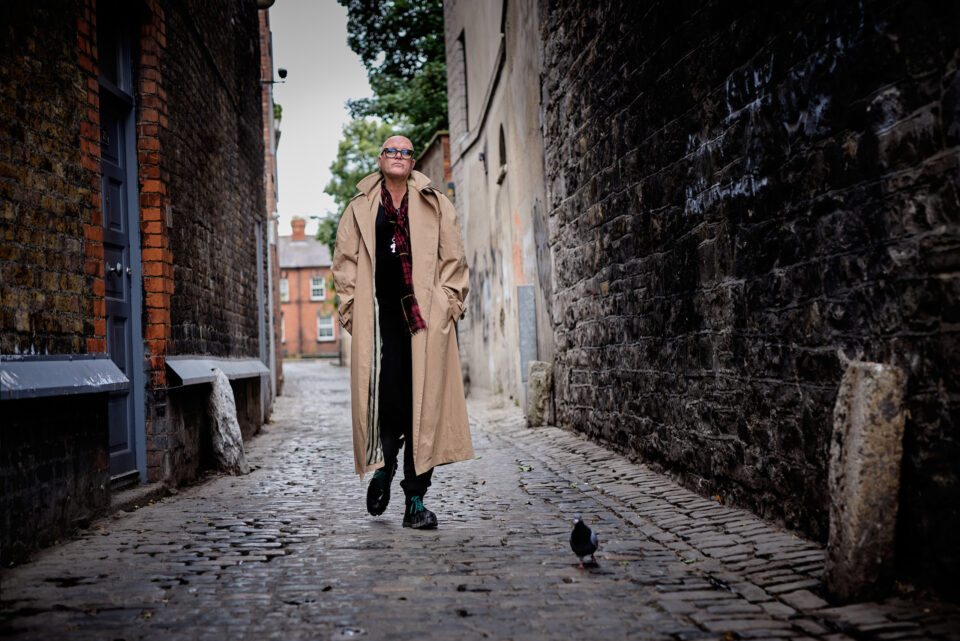
If the aggression that surrounds Ecce Homo was first initiated within the bowels of its title track—Friday’s “knee-jerk reaction to [our] President”—his love of America since the age of 11 and our nations’ close emotional connectivity (“Ireland’s your 53rd state”) is a lasting component of this new album. “I love your country and spent so much time there when on tour with U2,” says Friday of an ensemble starring his oldest, dearest Dubliner friend, Bono.
With that, you’d think this would be the perfect set up to discuss Ecce Homo’s most ruminative, brotherly track, “The Best Boys in Dublin.” Instead, I’m happily brought back to the beginning of our chat: “That song is about my two dogs—they come everywhere with me,” says Friday, free of religion, free of tearing up over his parents, free of American and Irish politics. “My dogs are in the studio with me, on tour with me. Two long-haired dachshunds. Your sausage dogs. And when I sing to them, I sing, ‘Who are the best boys in Dublin? You are. You are.’”
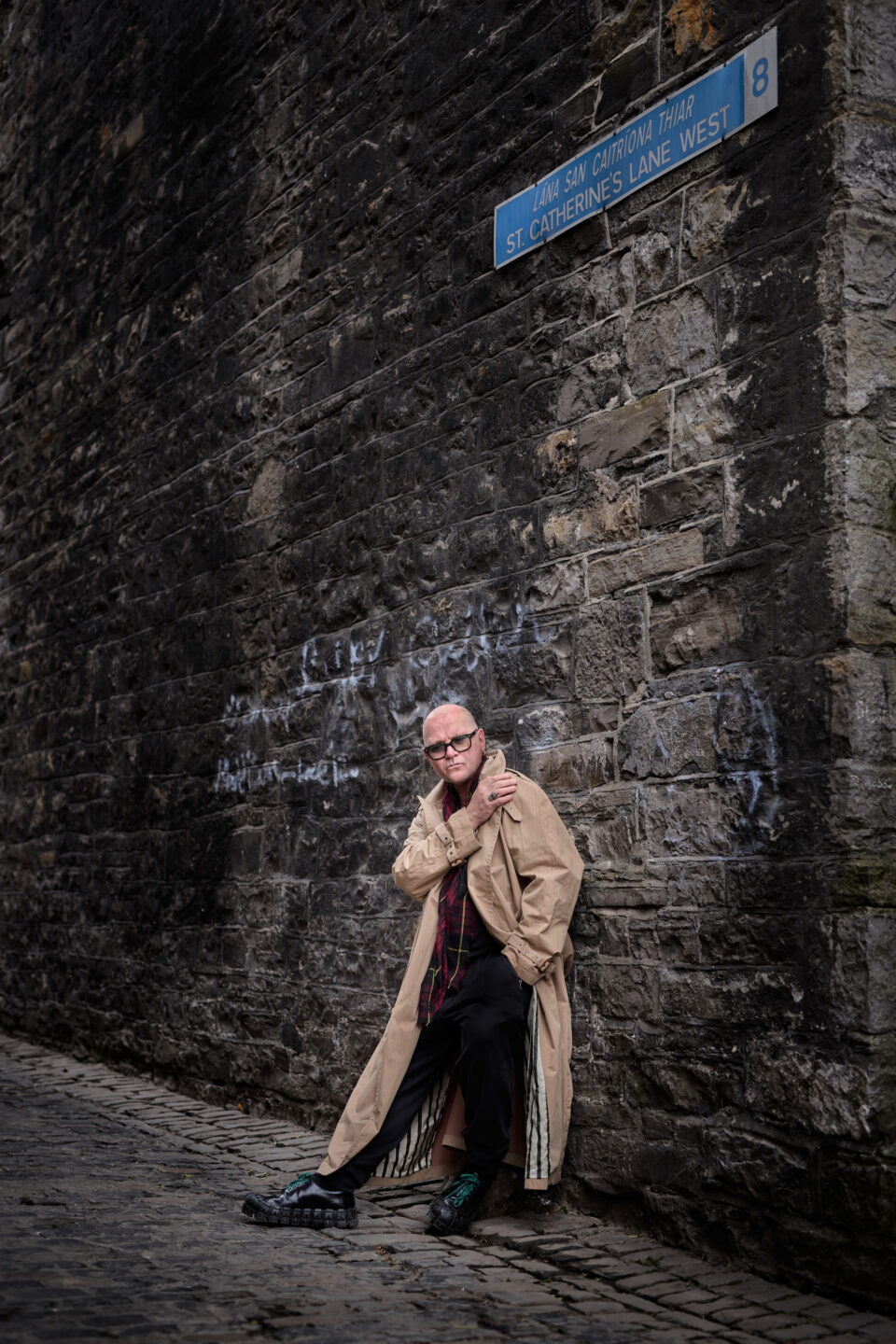
“I get angry at men who point fingers at women’s sexuality, but won’t look at the souls around them. God is supposed to be love.”
The death of one of Friday’s dogs, Ralph, the day after Sinead O’Connor passed away cuts as deep as any of the losses within Ecce Homo and creates a lasting bracket for the experiences that mark his new album—and for this interview. “Having this song on the album…it was something of a palate cleanser for this record,” he says as if suddenly realizing how deep we went during our conversation. “We started with dogs taking a shit and now we’re talking about a song dedicated to my two loving dogs—the dogs that have saved my life. When I got these two dogs 14 years ago, wow, they helped me chill. When you go for a walk on the beach with dogs, you’re really on the beach. Forests, parks, wherever. It’s mindfulness. And what they give us and our lives….”
As Gavin Friday trails off, Zoom-ing off and into the sunset of Dublin, God and dogs are the joys he’s left with me to consider while listening to the intensity of Ecce Homo. FL
